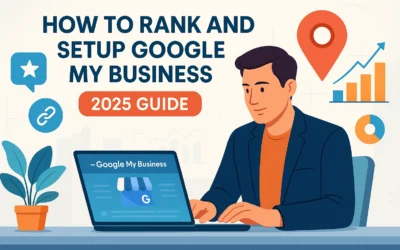Introduction to Generative Engine Optimization (GEO)
Search has changed dramatically over the past decade. What began as a simple keyword-driven process has now transformed into AI-powered search experiences. In 2025, users don’t just type keywords into Google; they ask conversational questions and expect AI-generated answers. This shift has given rise to Generative Engine Optimization (GEO) — a strategy focused on optimizing content for AI-driven search engines like Google’s Search Generative Experience (SGE), Microsoft’s Copilot, and even conversational AI platforms like ChatGPT.
But what exactly is GEO, and why does it matter so much for businesses in 2025? Let’s break it down.
On-Page vs. Off-Page SEO: What Matters More in 2025?: What Is Generative Engine Optimization (GEO) and Why It Matters in 2025The Evolution of Search: From Keywords to AI-Driven Engines
In traditional SEO, success depended largely on keyword placement, backlinks, and technical factors. While these still matter, the landscape is shifting. AI search engines now understand context, summarize information, and deliver direct answers instead of just listing websites.
For example, instead of showing ten blue links for “best marketing strategies 2025,” Google’s SGE may generate a comprehensive summary and only reference a handful of websites.
This means if your content isn’t AI-optimized, it risks being left out of these results.
How Generative Engine Optimization (GEO) Differs from Traditional SEO
While SEO aims to optimize for Google’s ranking algorithms, GEO focuses on making content AI-friendly — ensuring it can be easily understood, summarized, and presented by AI systems.
Key differences:
- SEO = keywords, backlinks, technical optimization
- GEO = conversational queries, structured content, authority-driven writing
- SEO = ranking on page one
- GEO = being referenced in AI-generated answers
Understanding GEO in 2025
The Rise of AI Search Assistants
From Google SGE to Bing Copilot, and even ChatGPT Search integrations, AI-driven engines are reshaping how people find information. Instead of scrolling through websites, users now rely on AI summaries.
Why Website Speed Matters: How to Optimize for Performance: What Is Generative Engine Optimization (GEO) and Why It Matters in 2025Why Businesses Need GEO to Stay Visible
If your content doesn’t appear in AI-generated responses, your business may lose significant visibility, traffic, and leads. GEO ensures your content is structured for AI retrieval, making it more likely to show up in conversational search results.
Core Principles of Generative Engine Optimization
- Content Structured for AI – Use clear headings, bullet points, and concise summaries.
- Conversational Optimization – Write in a natural, human-like tone.
- Context and Relevance – AI values authority, experience, and credibility more than keyword stuffing.
Key Benefits of Generative Engine Optimization (GEO) for Businesses
- Higher Visibility: Being featured in AI responses increases brand exposure.
- Trust and Credibility: AI-generated answers often pull from authoritative content.
- Better Conversions: GEO ensures the right audience finds your business.
GEO vs. Traditional SEO: A Side-by-Side Comparison
| Factor | Traditional SEO | Generative Engine Optimization (GEO) |
|---|---|---|
| Focus | Keywords & links | Conversational queries & context |
| Goal | Rank on page one | Appear in AI-generated answers |
| Output | Snippets, SERPs | Direct AI summaries |
| Strategy | Keyword density | Natural, structured, human-like writing |
Practical GEO Strategies for 2025
- Write for AI Summaries – Keep content clear and structured.
- Use Schema Markup – Helps AI interpret your content.
- Leverage FAQs – Since AI often pulls Q&A-style answers.
Common Mistakes to Avoid in GEO
- Over-optimizing keywords.
- Ignoring natural language.
- Focusing only on Google while neglecting AI-driven platforms.
Future Trends: The Next Phase of GEO
- Voice Search Growth – More queries will come via smart assistants.
- Hyper-Personalization – AI will deliver answers tailored to each user.
- Integration with Marketing – GEO will align closely with content, social, and paid strategies.
FAQs on Generative Engine Optimization
1. What is GEO in simple terms?
Generative Engine Optimization means creating content that AI search engines can easily understand and include in their answers.
2. Is GEO replacing SEO?
Not entirely. SEO is still important, but GEO builds on it to ensure visibility in AI-driven searches.
3. How does GEO affect Google rankings?
Instead of just ranking, GEO helps your content appear in AI-generated summaries on Google.
4. Who needs GEO the most?
Businesses, bloggers, and marketers who rely on online visibility.
5. Does keyword density matter in GEO?
Not as much. Context, relevance, and authority are far more important.
6. How can I start with GEO in 2025?
Begin by structuring your content with headings, FAQs, and conversational tone.
Conclusion: Why GEO Is the Future of Search in 2025
Generative Engine Optimization (GEO) isn’t just a buzzword—it’s the future of search. With AI-powered engines dominating how users discover information, businesses must adapt. By creating structured, conversational, and authoritative content, you can ensure your brand remains visible in 2025 and beyond.
👉 The sooner you adopt GEO, the stronger your competitive advantage will be.




